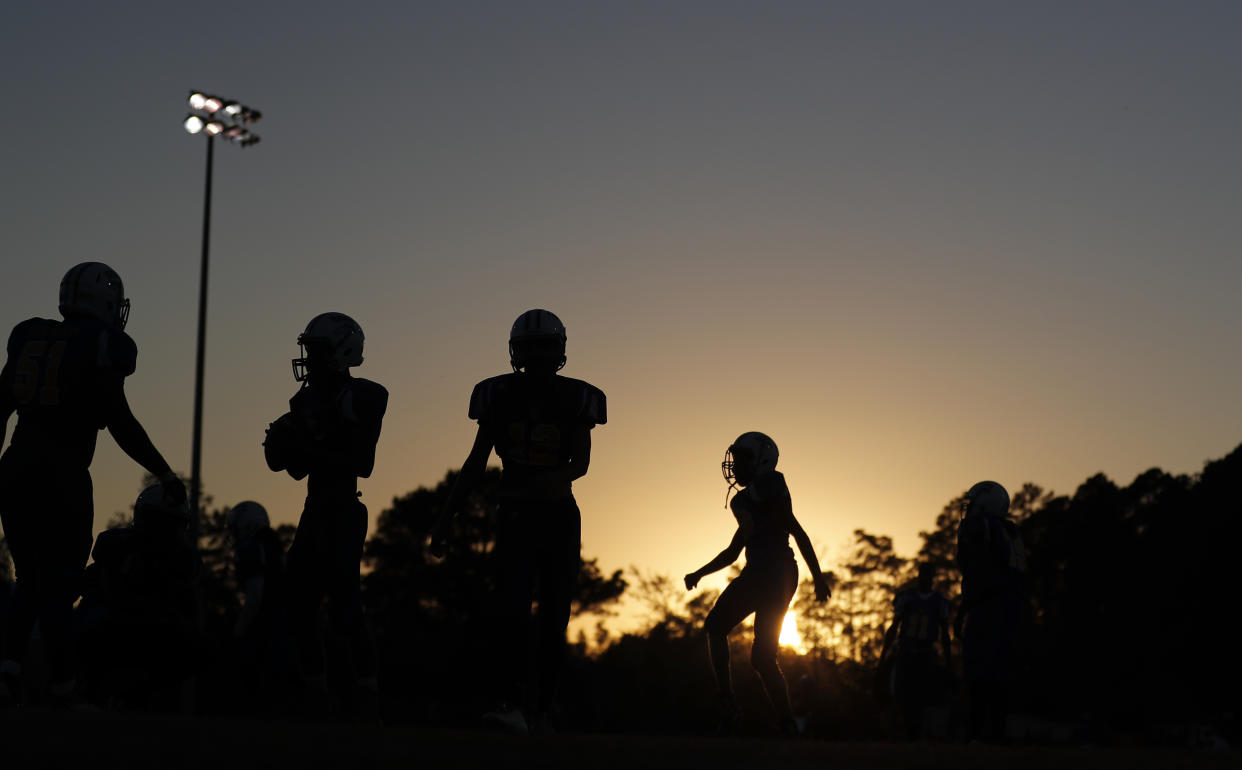HS football player's death with no trainer on site raises questions about safety at smaller schools

On Friday, Byhalia High School sophomore Dennis Smith collapsed on the sideline during a football game in Mississippi and was later pronounced dead at a hospital.
On Monday, his grandmother raised questions about the program’s handling of the situation and medical preparedness with the Memphis Commercial Appeal.
Grandmother: Player returned to game after vomiting
Adeline Richard told the Commercial Appeal that her grandson, a defensive end, was involved in a big hit in the game at Mississippi’s Coahoma County High School that led to him vomiting on the sideline. She said that he returned to the game after asking to be put back in before he collapsed on the sideline later in the game.
From there he was taken to the hospital and pronounced dead. Family friends told Fox 13 in Memphis that Mitchell had a seizure at the hospital and died of cardiac arrest, though the Marshall County Schools superintendent released a statement saying the coroner did not explain the cause of death.
“How can (the coaching staff) just put him back in the game?” Richard asked. “It was hot, he was tired, his head was hurting, he didn’t feel well and he got sick. I just don’t understand.”
Report: No trainer on site the night Dennis Mitchell died
The Commercial Appeal reports that there was no certified athletic trainer on site during the game, a fact that Coahoma County High principal Tony Young confirmed with the publication.
The Mississippi High School Activities Association requires that coaches are required to have first responder training, but that having athletic trainers on the sidelines is not mandatory.
“Schools are responsible for having a certified athletic trainer on site during the games,” MHSAA executive director Don Hinton told the Commercial Appeal. “We’d like for all 250 or so schools to have one on site, but it’s just not easy for us to provide one for every game in Mississippi each weekend.”
Hinton told the Commercial Appeal that smaller schools like 2A host Coahoma County High often have trouble securing a certified athletic trainer during games.
Should football be played without medical supervision?
This raises an obvious question. If schools and athletic programs can’t provide adequate medical personnel to oversee a violent, collision-based game often played in extreme temperatures, should those programs host football games?
Increased attention has been placed on the violent toll football takes on the bodies of players at every level. The University of Maryland recently accepted responsibility for “mistakes made” in the death of offensive lineman Jordan McNair, who died of heat stroke suffered during a spring practice.
If a big-budget NCAA program like Maryland is susceptible to making medical mistakes that lead to player deaths, how is a rural Mississippi high school without proper medical personnel on the sideline expected to fare?
There’s simply not enough information on Mitchell to determine if a certified medical trainer would have been able to save his life on Friday. He may have died with or without a trainer on site.
But this tragedy raises an obvious point. If a school can’t provide proper medical oversight of a violent game played in extreme conditions, it probably shouldn’t be hosting football games to begin with.
More from Yahoo Sports:
• Jeff Passan: MLB attendance is spooking owners
• Patriots’ Brady hangs up during live radio interview
• Tiger on Trump: ‘We all must respect the office’
• Pat Forde: Fearless predictions for college football

